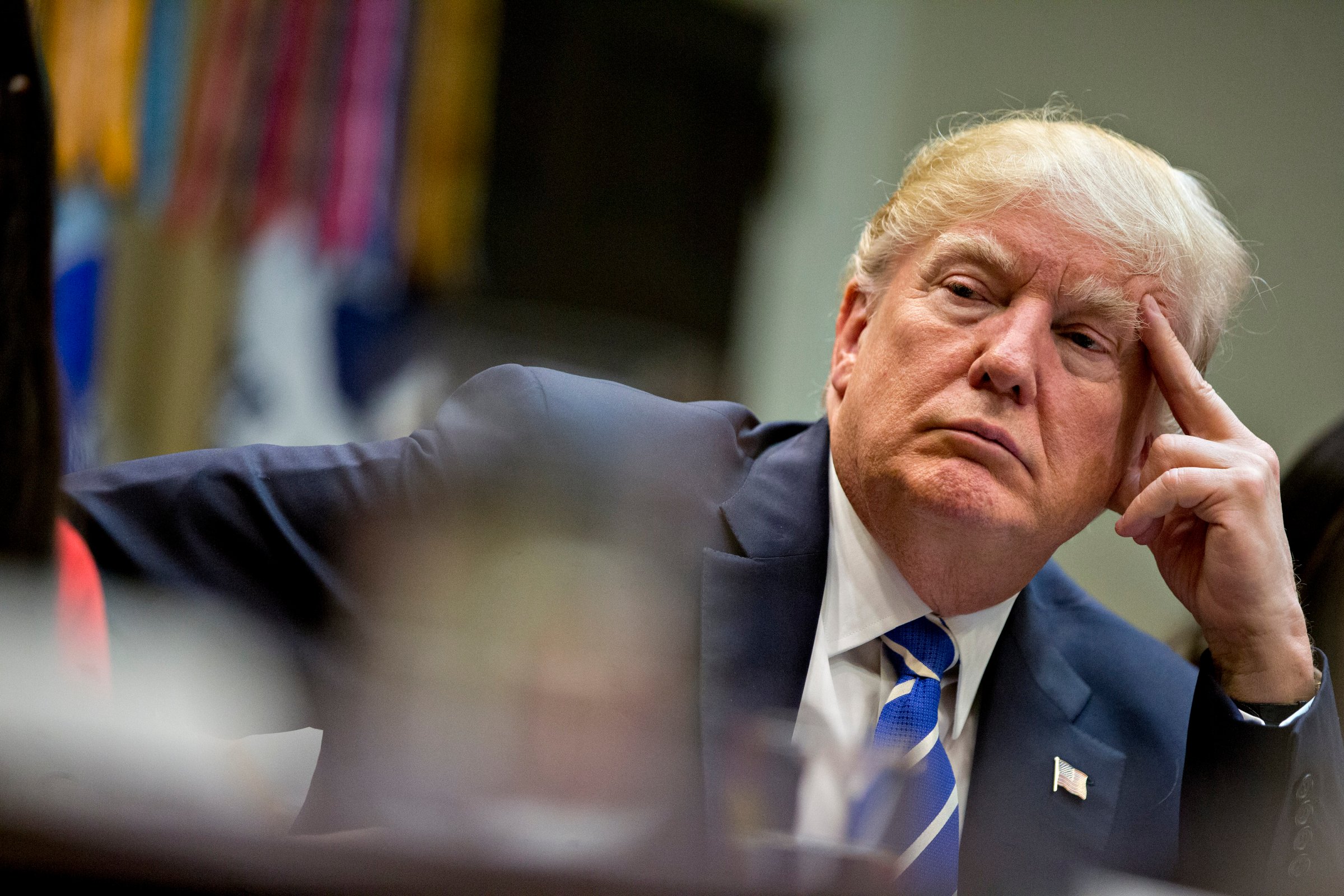
Donald Trump is making a big legal move that may shape his presidency over the next four years. In New York Supreme Court, his longtime lawyer Marc Kasowitz looks to throw up a roadblock to a defamation lawsuit filed by Summer Zervos, who appeared on season five of The Apprentice.
Zervos, represented by Gloria Allred, claims that Trump tarnished her reputation by denying acts boasted to Access Hollywood’s Billy Bush about grabbing women’s genitals. The Apprentice alum accuses Trump of kissing her twice in 2007 and attacking her in a hotel room. In response to this, Trump put out a statement that he “never met [Ms. Zervos] at a hotel or greeted her inappropriately,” along with tweets how his accuser “made up events THAT NEVER HAPPENED.”
Read more: Jim Carrey Calls Out Sean Spicer for Having Something in His Teeth During Presser
Now, Trump is looking to bifurcate the litigation so that “the threshold issue of whether the United States Constitution bars this Court from adjudicating this action against President Trump during his Presidency” can be briefed and resolved first.
Kasowitz writes that Trump intends to file a motion to dismiss arguing that the Supremacy Clause immunizes the President from being sued in state court while in office. The attorney adds the “crucial threshold issue was raised, but not decided, by the U.S. Supreme Court in Clinton v. Jones.”
That refers to a lawsuit that Paula Jones filed against Bill Clinton in 1994, while he was serving his first term in the White House. Jones alleged that Clinton sexually harassed her while serving as Governor of Arkansas. Clinton’s attorneys argued that in all but the most exceptional cases, any litigation against the president should be deferred until he left office.
Read more: Conservative Star Tomi Lahren “Banned Permanently” From The Blaze
In 1997, the high court came back with its answer that a president can’t escape private litigation.
“Indeed, if the Framers of the Constitution had thought it necessary to protect the President from the burdens of private litigation, we think it far more likely that they would have adopted a categorical rule than a rule that required the President to litigate the question whether a specific case belonged in the ‘exceptional case’ subcategory,” wrote Justice John Paul Stevens at the time. “In all events, the question whether a specific case should receive exceptional treatment is more appropriately the subject of the exercise of judicial discretion than an interpretation of the Constitution.”
But Trump’s lawyer seizes on another aspect of the decision.
Stevens also wrote that “immunity questions should be decided at the earliest possible stage of the litigation” in recognition of the “singular importance of the President’s duties.”
Read more: Ted Koppel Tells Sean Hannity He is ‘Bad for America’
“Moreover, as in Clinton v. Jones, the public interest mandates that the immunity issue be resolved before proceeding further,” writes Kasowitz. “The ‘singular importance of the President’s duties’ warrants a stay where civil actions, such as this one, ‘frequently could distract a President from his public duties, to the detriment of not only the President and his office but also the Nation that the President was designed to serve.’ Requiring President Trump to litigate the merits on a motion to dismiss the complaint, in addition to moving to dismiss on grounds of Presidential immunity, would negate the very interests that that immunity is designed to protect.”
According to Trump’s court papers, Zervos’ lawyer initially agreed to a 30-day extension, but wouldn’t agree to a more expansive time table without an agreement to accept service of Zervos’ subpoena. Without a deal, a judge is now being asked to intervene in a constitutional showdown.
This article originally appeared on TheHollywoodReporter.com
More Must-Reads from TIME
- Inside Elon Musk’s War on Washington
- Meet the 2025 Women of the Year
- The Harsh Truth About Disability Inclusion
- Why Do More Young Adults Have Cancer?
- Colman Domingo Leads With Radical Love
- How to Get Better at Doing Things Alone
- Cecily Strong on Goober the Clown
- Column: The Rise of America’s Broligarchy
Contact us at letters@time.com